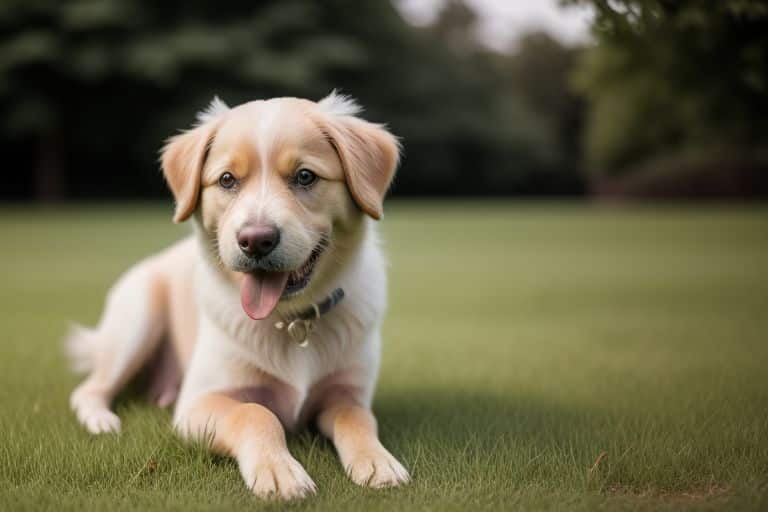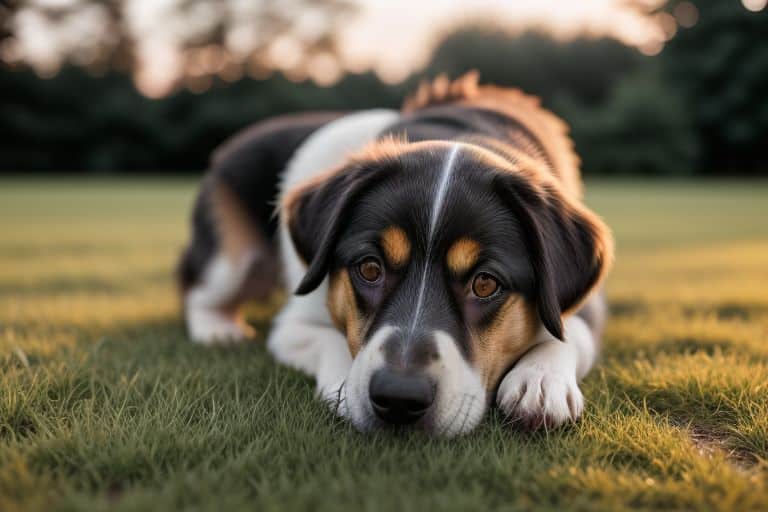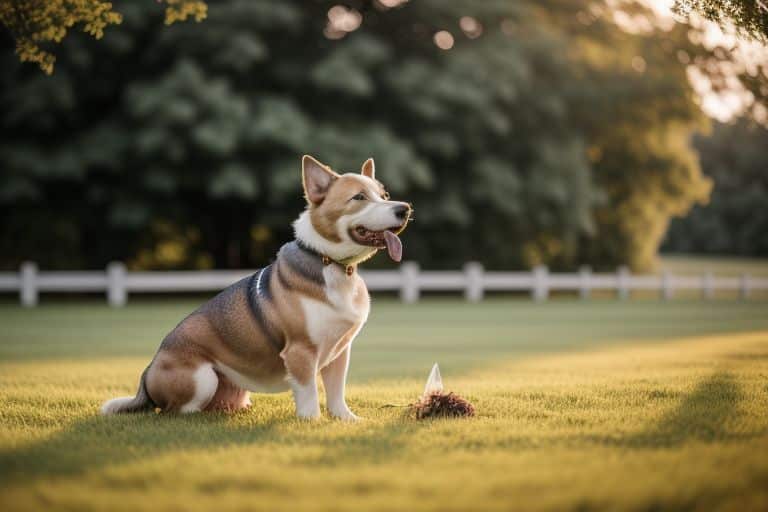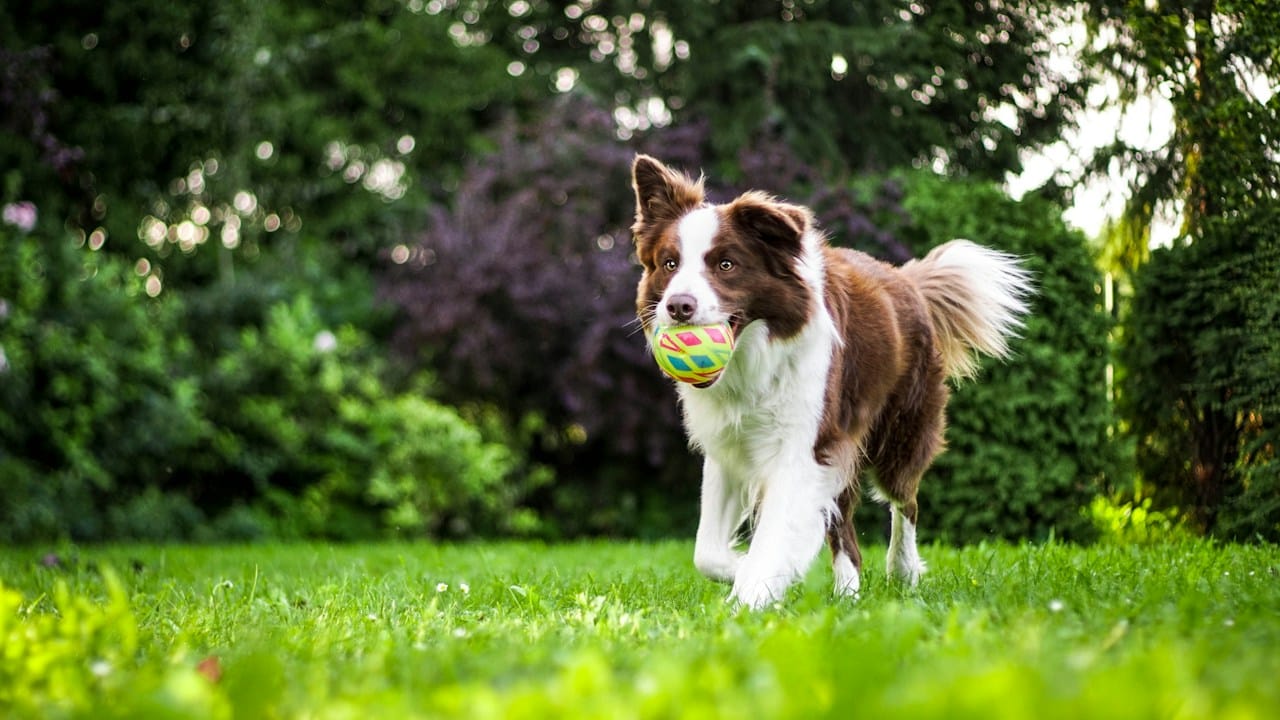Ever wondered why dogs eat grass? Sometimes, dog owners don’t know what to do in those situations. Let’s find out how to help when a dog eats grass.
Table of Contents

Why do dogs eat grass
Have you ever seen your dog eating grass on walks? It’s because they’re curious about their surroundings, kind of like a habit. Wolves, dogs’ distant relatives, did the same thing when they ate prey filled with plants.
Many dogs nibble on the grass during walks, and usually, it’s okay unless they eat too much and get sick.
Some dogs snack on grass occasionally, while others do it a lot. If they eat grass and don’t get sick, it’s usually fine. But what if your dog eats grass and then throws up? That’s when you need to take action quickly.
What should you do if your dog eats grass?
First, figure out how your dog is feeling:
- If your dog is sad, not playing, and won’t eat, it’s best to go to the vet. They will check your dog and do tests like blood tests and an ultrasound.
- If your dog seems fine, playing, and happy after throwing up, there might not be a big problem. Just watch them, and if it goes on for many days, it’s better to visit the vet.
If your dog eats grass and throws up but acts fine afterward, you can wait and see. Pay attention to his mood and check his poop. If everything seems good, there’s no need to worry. Just give him a bit less water, filling the bowl more often to keep him hydrated.

Is it okay for my dog to eat grass?
Here are a few things to be careful about if your dog eats grass:
- Pesticides: Some grass may have pesticides that can make your dog sick. If you think your dog ate grass with pesticides, take them to the vet right away. Signs of trouble include too much spit, feeling sick, throwing up, having runny poop, and not wanting to eat.
- Poop from Other Animals: Sometimes, grass can have poop from other animals on it. If your dog eats grass with this poop, they might get sick. Some sicknesses, like parvovirus, can be really bad, especially for dogs and puppies who haven’t had their shots. This sickness can make dogs very sick or even die.
Also, poop from other animals can have tiny eggs or worms that might make your dog lose weight or have runny poop.
Usually, dogs take medicine every month to keep away worms, and vets check their poop to make sure they’re okay. If they find anything, they use different medicines to help.
What are the causes that can stimulate vomiting?
When a dog eats grass and throws up, it doesn’t mean the grass is bad. There could be other reasons, like:
- Eating the wrong food
- Tummy problems that keep happening
- Not being able to handle certain foods
- Swallowing things like stones or toys
- Issues with the liver or pancreas
Some of these problems are serious, especially if your dog keeps throwing up. The best thing is to talk to your vet because vomiting might show an underlying problem.
Sometimes dogs eat grass to help with digestion when they don’t feel well. If you find bits of grass in your dog’s vomit, it means they’re trying to feel better by throwing up. This usually happens after not eating for a while.

Wondering how to make your dog stop eating grass? Here are some ideas:
- Keep your dog on a leash when walking in grassy places.
- Go for walks right after your dog eats.
- Let your dog play in the grass later in the day.
Want to try some positive tricks? When your dog tries to eat grass, calmly stop it (without scolding) and ask it to do something else, like touch your hand for a treat or chase its ball.
If you’re worried about toxins or worm eggs, grow grass for your dog to munch on. It’s safer that way.
Check the variety of grass
If your dog throws up, it’s important to figure out what grass they ate. It’s tricky because there are many types in the yard. Dogs usually like common grass that they can easily pull with their jaws. To find out more, take samples from the area where they got sick and check if it has any pesticides or fertilizers.
References: Akc, PetMd, The Guardian

